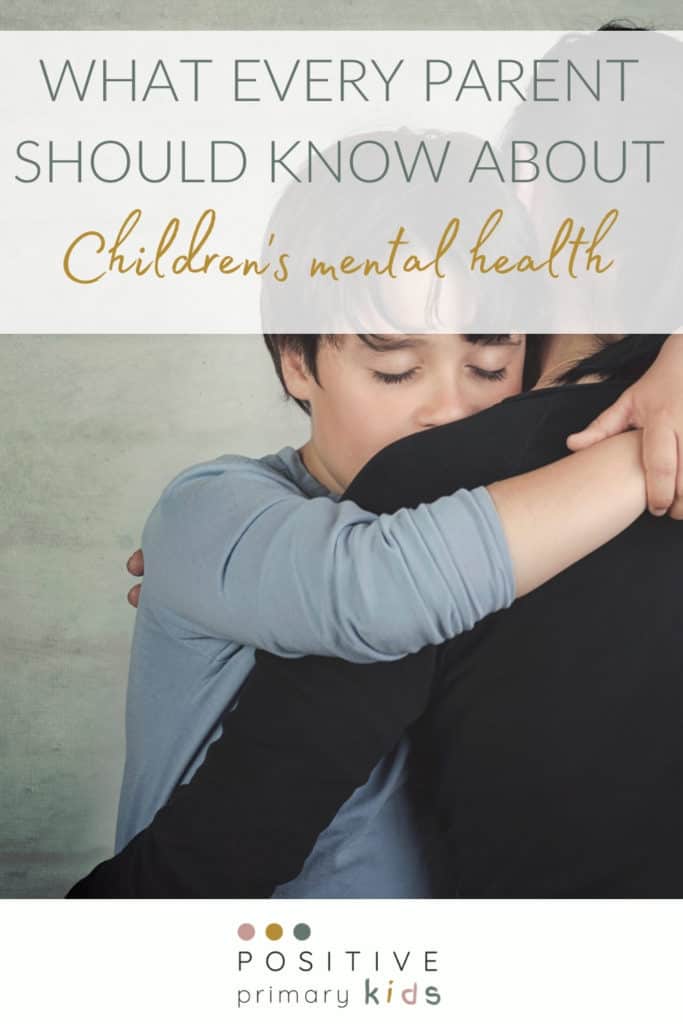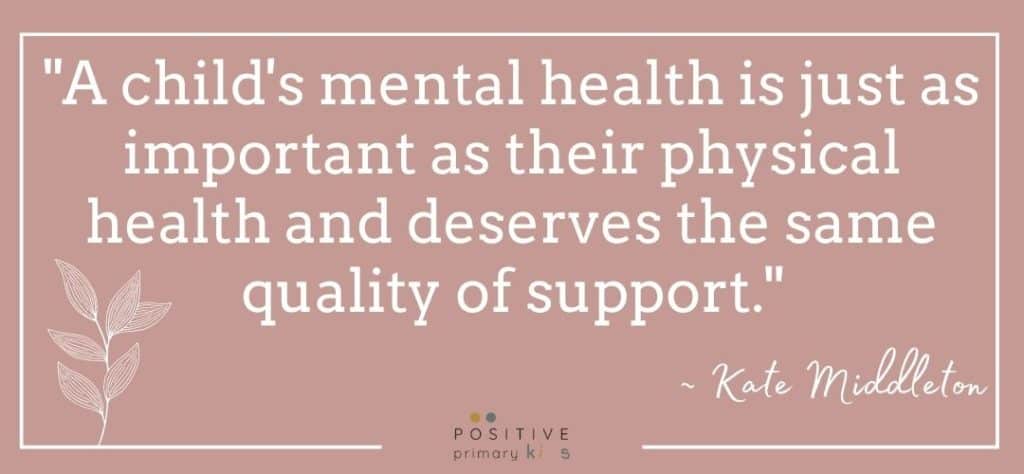Unsurprisingly, the COVID-19 pandemic, lockdowns and school closures have contributed negatively to children’s well-being and disrupted their education.
Children’s mental health and emotional needs are every bit as important as their physical health needs, but they don’t receive the same attention. It’s high time that this balance is redressed.
But what mental health problems are affecting children? What causes them? And how can we protect children and support them if they are struggling?
In this post
- What is mental health in a child?
- What causes children’s mental health disorders?
- What are some common mental health problems in children?
- How has COVID-19 impacted children’s mental health?
- How do I know if my child has a mental health disorder?
- How can I help my child with mental health?
- Common mental health misconceptions
- Final thoughts and reminders
Affiliate Disclosure: This post may contain affiliate links. This means that I may receive a small commision – at no cost to you – if you make a purchase through these links. Thank you for your support!
What is mental health in a child?
We are all familiar with the term ‘mental health’, but it can be helpful to get really specific about what a term really means.
Whereas physical health refers to an individual’s body working at its peak and includes fitness, diet, sleep, illness and injury. Mental health refers to how we think, feel, behave and react and includes emotional, psychological and social wellbeing.
Physical and mental health are very closely linked but frustratingly, physical health education is often given much more attention.
Despite a rise in awareness in recent years, mental health is still often a taboo subject. Many people are uncomfortable and discriminatory toward mental health problems. This often leads to people who are struggling with mental health issues doing so in silence, isolation and shame.
What causes children’s mental health disorders?
Some mental health disorders are thought to be genetic. However, in many cases, the cause of children’s mental health issues is unclear or hard to pinpoint.
Traumatic events such as bereavement, parental separation, witnessing or experiencing violence or abuse and being bullied are often at the root of issues. Peer pressure and social media play an influential role in mental health too.
What are some common mental health problems in childhood?
IMPORTANT! If you are at all concerned about your child’s wellbeing, please contact a health professional immediately.
Good emotional health and well-being allow children to thrive in all areas of their lives. However, issues rooted in poor mental health are serious. Left unaddressed during childhood, these problems can become life-long and severely limit opportunities and impact quality of life.
Increasingly common mental health issues seen in children include:
- Stress
- Depression and other mood disorders
- Anxiety disorders
- Behavioural disorders
- Hyperactivity
- Self-harm
- Eating disorders
- PTSD
It’s worth mentioning that despite the worrying statistics about the rise of mental health issues, one explanation could be that young people are becoming more aware of these issues and are self-reporting.

How has COVID-19 impacted children’s mental health?
At the time that the news stories started to break about COVID I was tutoring my students in person from my home. Those children were absorbing the news and some were noticeably unnerved. They had so many questions, but of course no one had the answers, so the best I could do was reassure them and remind them how to keep themselves as safe as possible.
When I pivoted to online tuition, many of my students shared their worries with me. Some were scared that their grandparents would die or that they’d never get to visit them again. Some had parents who were health care professionals and they worried that they would get infected at work. Others were scared that they would never go back to school. It was clear that the pandemic was causing these children stress and anxiety.
Lockdown turned all of our lives upside-down, but as adults, we have more tools for coping with upheaval. Kids had to adapt instantly to online school, all of their groups and clubs closing and not being able to socialize with their friends and classmates. Their worlds became incredibly small.
Research from NHS Digital showed that common pandemic related anxieties that children between the ages of 5 and 16 had included:
- Being afraid to leave the house
- Spreading COVID-19
- Catching COVID-19
- Loved ones catching COVID-19
- Worrying about missing school
How do I know if my child has a mental health disorder?
The more that you are aware of the warning signs, the quicker you can help children who are experiencing problems with their emotional or mental health. Essentially, prompt professional help can prevent problems from escalating.
Some signs to be aware of:
- Being unusually withdrawn and quiet
- Sleep problems – sleeping too much or having trouble sleeping
- Behaving in a more worried or anxious way
- Difficulty concentrating
- Losing interest in things that they usually enjoy
- Being more irritable than normal or having outbursts
- Self-harming
- Reckless behaviour
- Experiencing frequent headaches or stomachaches
- Changes in appetite and eating habits
- Avoiding or attempting to avoid school
If you are worried about your child, please contact your doctor as a priority.
How can I help my child with mental health?
Good mental health can be nurtured in many ways at home. Open communication is a great place to start. Be there to listen actively to their worries and support them through difficult experiences. Creating opportunities for activities to do together and talking openly about mental health helps normalise the topic.
Being a positive role model and showing your children how you look after your own mental health will help them develop good habits too.
Encouraging children to practise self-care from an early age gives children the confidence and tools that they need to reach their full potential. Creating healthy routines and building habits that nurture their physical, mental, emotional and social wellbeing helps to relieve stress and support overall health. Self-care activities like mindfulness, meditation and practising gratitude are brilliant for looking after mental health.
Common Mental Health Misconceptions
Everyone has mental health – just as everyone has physical health. Having a mental health problem doesn’t make a person ‘crazy’, it means that they are experiencing challenging symptoms in the same way that viruses cause physical symptoms.
Here’s a round-up of some of the most common mental health assumptions and misconceptions:
- Mental health conditions are not that common
- Mental health conditions occur more in disadvantaged individuals and minority groups
- People with mental health conditions are likely to be violent or unpredictable
- People with mental health conditions are just being lazy or making excuses so as not to work
- Children don’t experience mental health problems
- Mental health problems are caused by character weakness
- People experiencing poor mental health can pull themselves out of it if they want to
- Medication always helps people struggling with their mental health
- It is impossible to prevent mental illness
Final thoughts and reminders about children’s mental health…
The more that we talk openly about issues affecting mental health and wellbeing, the more we will understand and find ways to support people who are struggling.
The stigma needs to end and I am proud to have a platform to advocate for mental health education and promote normalising this important subject.
Remember that any steps taken towards improving your children’s and your own wellbeing will never be wasted. Improving well-being requires patience, an open mind and effort. It is a journey that is rarely a quick route from A to Z!
Thank you for letting me come on your journey. I am excited to be developing resources to support your family’s well-being and can’t wait to share them with you. You can get started by downloading 7 printable morning affirmations below!
- Place2Be – Children’s mental health charity
- The Association for Children and Adolescent Mental Health
- Paper summary: Attitudes to mental health problems and mental wellbeing – National Centre Social Attitudes
- Mental Health of Children and Young People in England, 2020 – NHS Digital







0 Comments